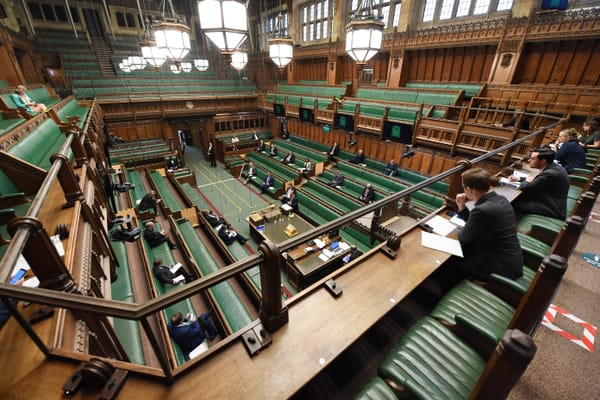Feeling disconnected from your peers this term? You're not alone...
Mental Health Officer Lauren Wheeler comments on the responses to the recent Union’s ‘How’s it going’ survey and calls for a strategy dedicated to students’ mental health
The majority of respondents in the Union’s latest survey reported feeling more isolated since starting university than they did before, with almost a third reporting feeling lonely most or all of the time. Unsurprisingly, the lack of social contact and remote delivery of courses is having a significant impact on student’s mental health and sense of wellbeing. Whilst at present, the restrictions in place as a result of COVID-19 are unavoidable, with the College, Union and student body making the best of the situation by delivering virtual activities and events, these interactions are not substitutes for real social contact. As we begin the long journey back to some form of normality in the coming year, we must remember that we cannot replace real human connection through technology and this reality must be a factor in every decision made in regards to the university’s future plans. We cannot allow student wellbeing to come second to economics, logistics or ease.
Over the summer it became clear that while most young people were not suffering severely from the physical effects of the virus, its consequences were greatly impacting their mental health. The number of 18-25-year-olds reporting loneliness rose from 16% to almost half and calls to helplines surged. It would appear that this still holds true, with a significant proportion of our cohort experiencing similar feelings, many still stuck at home having been unable to return to London to be reunited with their friends.
More concerning to me, however, are the experiences of students who did choose to return to campus, particularly first-years currently living in halls. For many of them it is their first time away from home, separated from their families. Due to the restrictions, they have all but been denied the chance to socialise and, as a result, establish meaningful relationships with their peers. These students have already faced almost 8 weeks in a tiny room, staring at a laptop for the vast majority of the day and been allowed only to physically meet with a small household bubble, who they may or may not enjoy spending time with. It does not take an expert to see that this situation is incredibly detrimental to a young person’s health, both mentally and physically.
Another shocking finding from the survey was that 75% of respondents reported feeling hopeless about the future at least some of the time. As a hall senior, I have heard concerns from various freshers about the impact that being taught remotely for the rest of the year (as many courses will continue to be) is going to have on their ability to meet people on their course, and on their ability to form of group of people who they might want to live with next year. For them it is a very real concern that they may enter into their second year still feeling ‘lost’ but without the support of hall social events to help them establish a friendship group, further perpetuating the problem.
I cannot quite understand why it is seen as completely irresponsible to teach school children remotely, due to their need for daily social interactions, yet university students only a year older are deemed able to cope with such isolation. Our brains are still maturing and social stimulation plays a key role in this process. That is why the mental health network will be calling for student wellbeing to be held in higher regard and be made a critical factor in every decision relating to COVID-19 restrictions and programme delivery going forward. We will also be pushing for the creation of a dedicated mental health strategy at the College which can help to influence plans for our post-COVID recovery.






